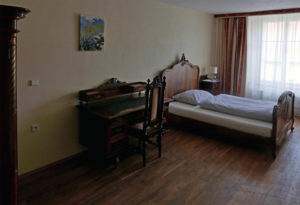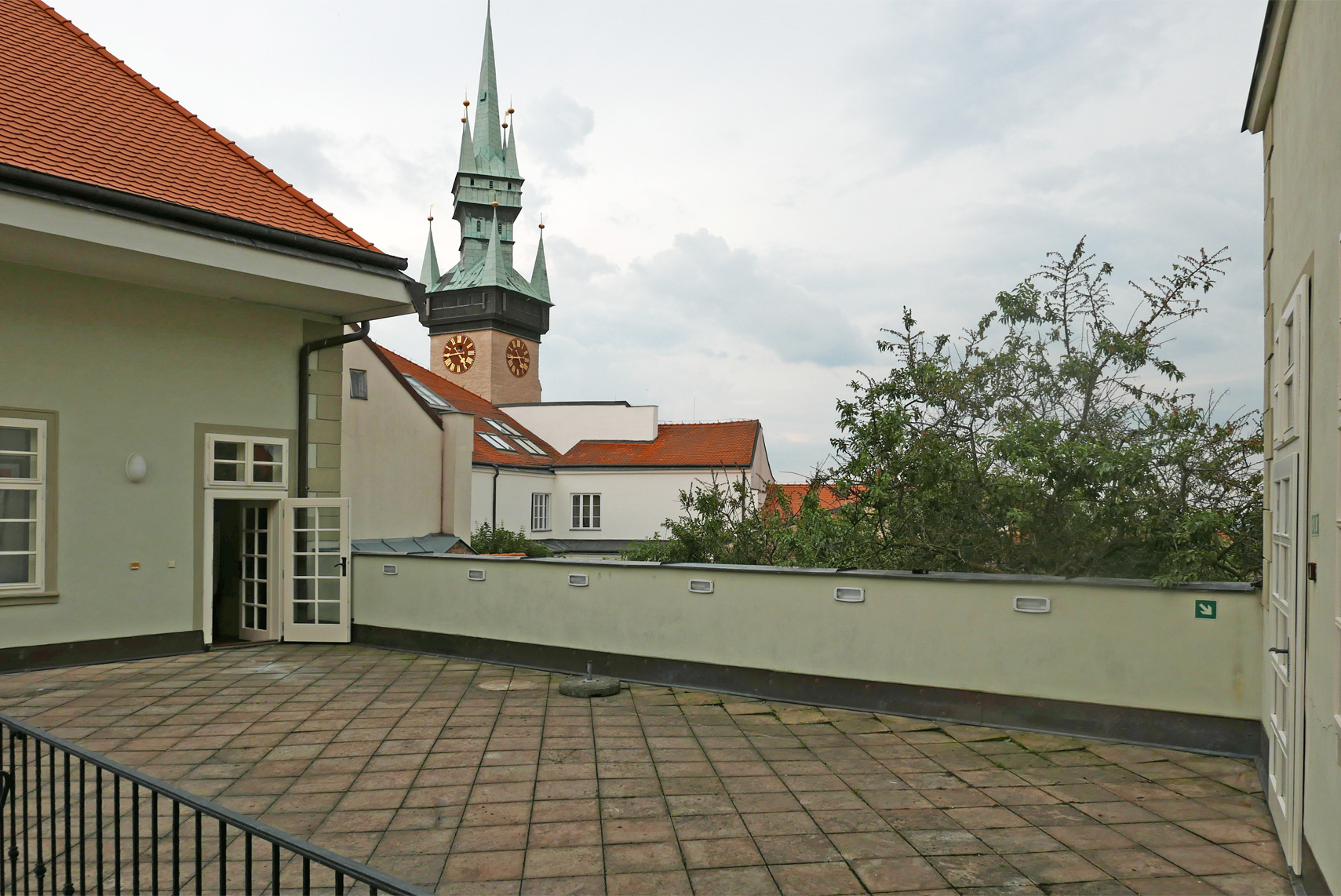Room overview
Single room
Single rooms on the third floor offer an undisturbed atmosphere of the past. Enjoy a peaceful stay in the very heart of the historical town of Znojmo.
Every storey has a spacious lounge area with a minibar and a kitchenette with standard appliances and dishes. A library is available on the third floor. You can chill and relax in the sunbeds.
Book this room
Reservation here

“Jana and all the others we met were really very nice and very helpful. The premises of Althanský Palác are stunning. The location is absolutely fabulous. If you are going to Znojmo, definitely book your room here. You won’t regret that.”
Tereza, Brno
“The accommodation is situated in an optimum location – right in the very historical centre of Znojmo. Just a stone’s throw from all the historical monuments, cafés and wine bars. Those who like old historical buildings will come into their own. Excellent parking in the yard, availability of breakfast (amazing coffee). Just lovely. Jana is an excellent host.”
Sara, Slovakia
Parking

Other rooms
We also offer other rooms
History & Present
The early Baroque town palace was built by Count Maximilian Lawrence in 1666-74 on the site of two medieval burgher houses on the Upper Square. The artistically valuable façade from the second half of the 17th century is marked by a tall order of Corinthian pilasters ending with an entablature. The centre consists of a columned portal with a balcony, above which are placed two stone coats of arms of the Houses of Starhemberg and Scherfenberg.
At the turn of 1631 and 1632, Albrecht von Wallenstein dwelt in this palace. It is said that superstitious Wallenstein had an astrological observatory built on the palace roof and the Italian astrologer Seni tried to read his destiny from the stars.
In 1723, Emperor Charles VI stayed with his daughter Maria Theresa here on their way to coronation in Prague and on the way back.
Originally, the Althanský Palác was owned by the Starhemberg family. Around 1712, when the house was taken by Znojmo Marshall Michal Ehrenreich, Earl of Althan, the palace became an official building. Even in the interwar period it served as the residence of the District Government and long after World War II it continued to serve as District Authority building.


